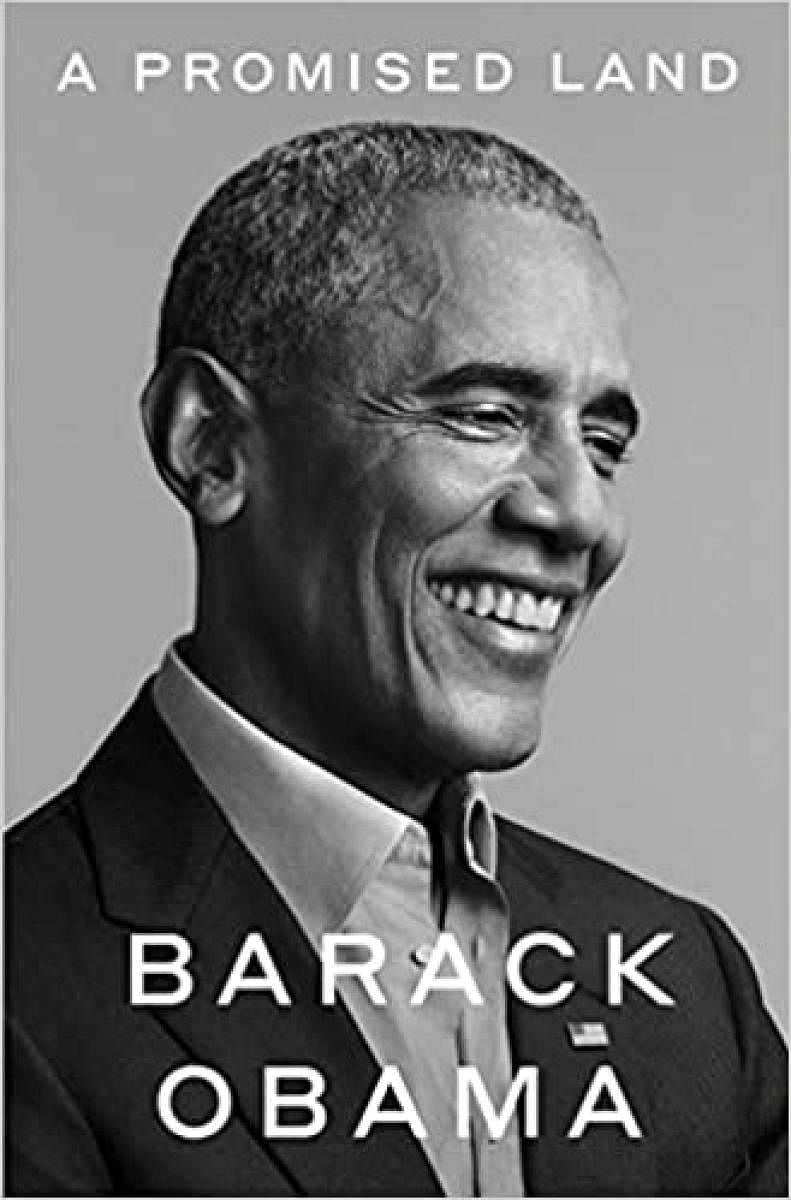
The two themes that dominate Barack Obama’s autobiographical account, A Promised Land, are there at the beginning of the book. They are the collective hope expressed in an African American spiritual song ‘O, fly and never tire….There is a great camp meeting in the Promised Land’ and Robert Frost’s call not to ‘Discount our powers; We have made a pass at the Infinite.’
The aspiration and assertion in these lines have run through Obama’s life and took him from very unremarkable circumstances in Hawaii to the White House. They have been fleshed out in detail in the story of his life as a student, as a social worker and a budding politician, a Senator and as the first Afro-American President of the country. It is a long account and covers his childhood, youth and the first term of his office. He says he had planned to write only 500 words and finish it in one year, but the story extended and took over three years to narrate. The second part is in the making, and only with that we will get a full account. But, the basic Obama story comes through in this volume.
The human story
Obama says he decided to tell his story not just as a historical record of the key events that happened on his watch, but also as an account of some of the political, economic and cultural cross-currents faced by his administration. He also wanted to tell the human story behind the Presidency and his personal story, which he thinks would inspire young people. The personal and the public get mixed up through the story, and Obama traces the evolution of a person with public spirit into a public personality with great personal qualities. The personal naturally gets precedence in the early part of the account and the public persona gets more importance later. The account of his childhood is fascinating and even poignant, though there is not much about his earliest years in Indonesia. He remembers a lot of his Hawaii life. Family members, friends, teachers and neighbours come through vividly. His relationship with his grandmother, who raised him in Hawaii, is special. We get to know, from the many incidents and his own habits that he describes, the elements in his personality and the qualities of his mind and intellect, which would later take him to a career in politics and to the Presidency. He developed his reading habit as a boy and that helped him to grow into one of the most informed and reflective Presidents of his country.
A lot of Obama’s life, especially its highlights, are known. After graduation, he did community work, studied in Harvard Law school, worked as an attorney and a teacher and later got into politics. In politics also he started at the grassroots level, became a state Senator and later a US Senator. Every stage prepared him for the next and we get the logic of progression. A large number of personalities, events and circumstances played their part, and he describes them in great detail and with great candour. The account can be read like a novel because it is a deeply human story. He is very articulate and has writing skills that match his intelligence and understanding. Even minor details of events, the looks of people, and the background information on events are remembered. Some of them might come from research, but the sharp eye for details can never be missed.
The presidential years
The greater part of the book is about his campaign for Presidency, his experience of the office, and the major decisions he took as President. Obamacare and the Recovery Act, which addressed the 2008 financial crisis, the raid on Osama bin Laden’s hideout in Pakistan and many other Presidential decisions and actions get detailed treatment. There is an attempt to give a granular view of the decision-making process, in which there is an emphasis on discussion and analysis, examination of different views and a study of the impact of the decisions. It also becomes clear that he had the leadership and intellectual wherewithal to stamp his authority on the process and have the final word. There is a template in this for democratic decision-making.
Through the entire story of the years of his life as a student, politician and President, Obama had an intense sense of his racial identity as a black. It was very positive for him and that is why he prevailed over personal, social and political prejudices to become the first black President of the US. It was difficult, as it has been noted from the time he became President, because being black, he had to have a double consciousness, the need to imagine what white people would think of him. That is the black man’s burden, which even a person who is among the brightest and best of all people, not just a black, had to bear. His life, with all his struggles and achievements, becomes all the more valuable for that.
His memoirs are a record of that. He tells a good story, which is personal and human, and is at the same time a social and political commentary on life in America, without ever challenging the readers’ interest. There is a strong moral streak running through the book, and nowhere would the reader doubt its genuineness. Autobiographies become valuable when they are written with honesty and sincerity. We feel the living presence of these values in Obama’s account.